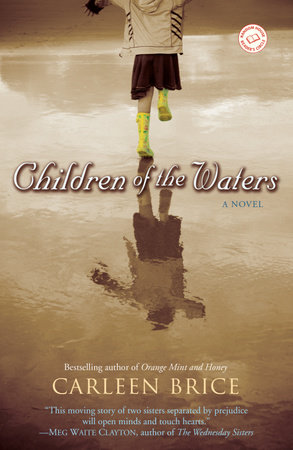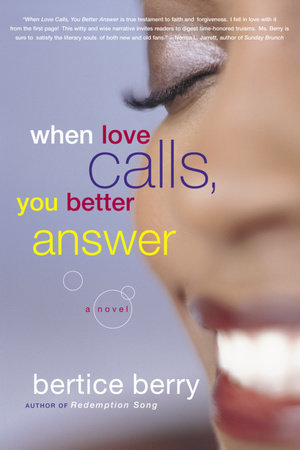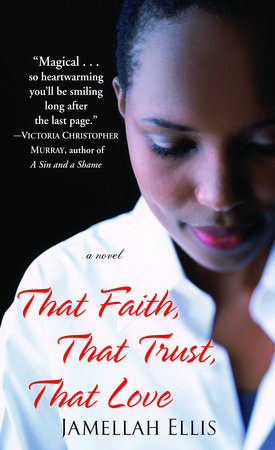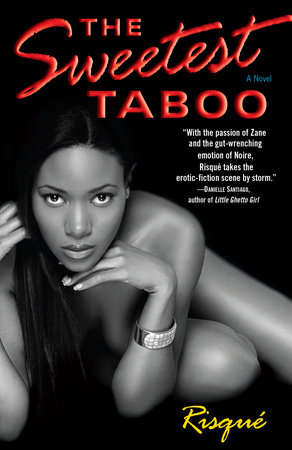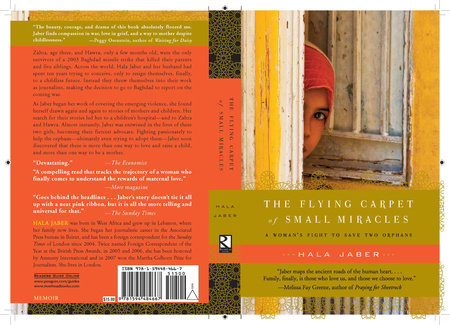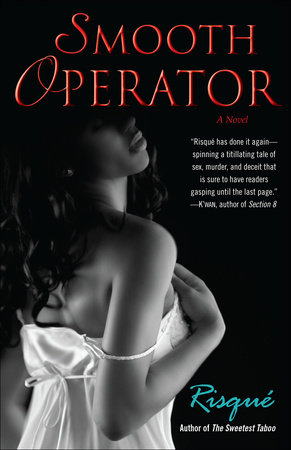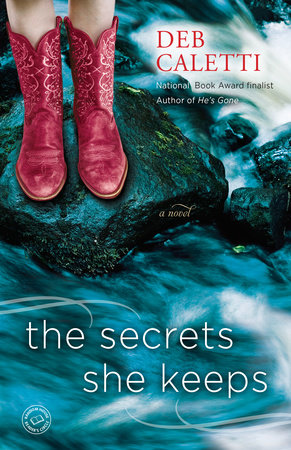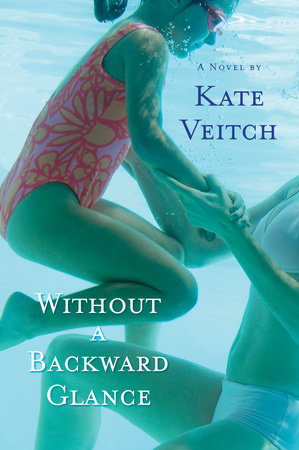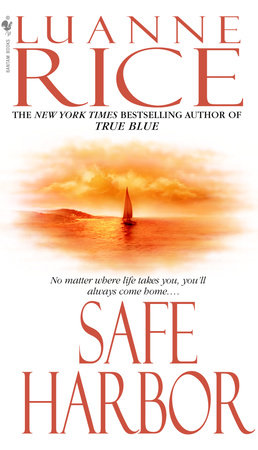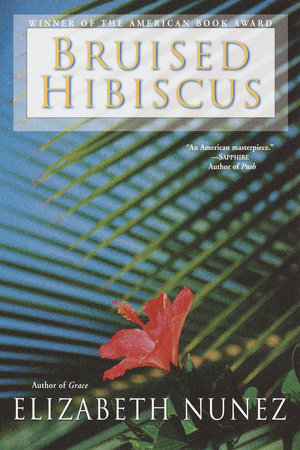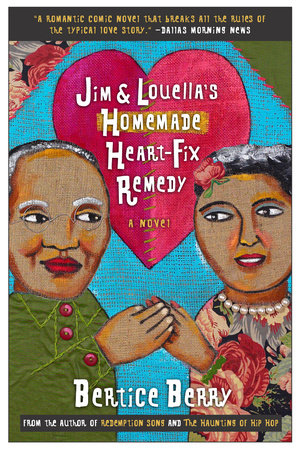Author Q&A
A Conversation with Carleen Brice
Random House Reader’s Circle: Carleen, it’s a pleasure getting the chance to sit with you and talk all things books, now that you’re a seasoned and award-winning novelist! Perhaps the best place to start would be to ask how you feel about the success of your first novel. Orange Mint and Honey earned the First Fiction Award from the Black Caucus of the American Library Association and debut novel honors from the African American Literary Book Club. It was an Essence book club pick, and there’s been interest from Hollywood–and of course, admiration from readers everywhere. Did you have any idea that this would happen?
Carleen Brice: I hoped, of course, for good things to come, but it’s pretty surreal when it happens. When they called my name at the awards for the African American Literary Book Club, and people at my table–who I had just met that night–screamed for me, it was amazing. The whole process has been incredible. I’m overjoyed and honored that my work has received so much attention. But the best thing has been reader response–I’m so grateful to the people who’ve taken the time to email me or write reviews online.
RHRC: Can you tell us a bit about your visits to individual book clubs to discuss Orange Mint and Honey? How did that come about? How did you find the experience?
CB: Book clubs contact me through my website, www.carleenbrice .com, or approach me at events and whenever I can, I make it a point to attend in person or via phone. It’s wonderful to hear the discussions firsthand. When you’re writing about your characters, it’s just you and them in a room. It’s really fun to see other people relate to them and treat them like they’re real–feeling sorry for them or getting mad at them–just like I did when I was writing. At first people are a little shy because the author is right there, but eventually they loosen up (the drinks served at book clubs might have a little to do with that!) and start saying how they really feel about the characters and the plot. I encourage that honesty (though so far it’s easy to do because nobody has hated it). It’s fun to hear one person say “I thought it was wrong for them to act out in the church the way they did.” And then someone else say, “I understand it. If I was Shay I would have been hollering too!” It makes me feel like I did my job when some of the group is siding with Shay and some of the group is siding with Nona, which happens at every single book club.
RHRC: Did any of the early feedback you received about Orange Mint and Honey impact the way you wrote this novel (which, by the way, is simply stunning)?
CB: Thank you! I wouldn’t say the feedback impacted how I write. I feel like I learned a lot writing my first novel, but writing this book was a completely different thing so I don’t know how much was applied to it. My goals were the same: to make people think and feel and for them to be entertained. It was inspiring to see that people responded so well to my first novel. It gave me hope that readers are interested in the same kind of characters and stories that I am.
RHRC: Children of the Waters touches on so many issues–chronic illness, family secrets, interracial relationships, challenging pregnancies, holistic healing, self-esteem. How did you come to write this novel? Did any characters or storylines jump out at you above any others?
CB:Well, the nugget of the story–the relationship with Trish and Billie–is based on a true story. One of my sisters-in-law is biracial and her family put her up for adoption and kept her older sister who is white. In real life she was adopted by a white family, so when her white birth sister found her, race wasn’t much of an issue. (And unlike Billie she was actually immediately very close with her birth sister.) There was also a young woman who worked for me years ago who discovered at a young age that her birth mother was Native American. Those two stories fascinated me. And truth be told I have a half sister who I’ve never met, and yet here I’ve written two books with characters who are half sisters. We’ve recently been in touch and I hope we’ll meet one day soon. As far as interracial relationships go, my husband is white.
One brother was married to a biracial woman and all his in-laws were white. My other brother is married to a Latina. Our family is, like many, many families in this country, quite a mixed bag. I’m fascinated by reconciliation and how the past affects us even if we don’t think it does. So family secrets and dynamics are something I’m just naturally drawn to.
RHRC: All of your characters have so many layers–especially Billie, whose ability to self-heal, reverence for her ancestors, and fulfilling love life are so expertly combined into one fierce package. Can you tell us a bit about how you came to put her together? What would you like most for readers to come away with in their understanding of this amazing woman?
CB:My husband says Billie is me. That’s not completely true, but I believe my ancestors are with me, and I’m into holistic healing. Billie and Trish are both combinations of myself and other women I know, and my family. My family is all through this book! I have a couple of aunties who are different parts of Zenobia. Herbert and Fletcher are different parts of one of my grandfathers. Billie’s love for them is definitely my love for my family coming through. So I start with those basics and then characters become themselves. It’s funny how once you give a character a name and a little history, you start to know the rest of what works for them.
RHRC: Why did you select lupus as Billie’s illness?
CB: I have a friend who was diagnosed with lupus, and it’s a disease that affects a lot of women in this country. I’m happy to shed a little light on it.
RHRC: Admittedly, Nick just might be our favorite character– although his irritable mood in the early chapters did kind of get under our skin. There was obviously so much more to this man than meets the eye. And in the love scene with Billie, where she thought he was moving back upstairs, he just about took our breath away! May we ask where you drew your inspiration from for Nick–and if he’s based on a real life character, does he have any real life brothers?!
CB: That’s so funny! I’m sure there are plenty of Nicks out there in real life.
RHRC: More seriously, Children of the Waters brings to the forefront so many questions about black male identity, from Nick’s familial challenges to Tommy’s distant parenting approach and Will’s struggles with being reared by a white woman. What type of dialogue are you hoping to encourage with these intense characters and scenarios?
CB: I like writing about people who are like the people I know and see in real life. I like Nick because he’s flawed and human, and yet very romantic and a good guy. I’m interested in helping the world see that Barack Obama isn’t the only good black man. There are many. And what about Fletcher–he just might be my favorite character!
RHRC: Now, we know you’re no stranger to discussions of race with regards to literature. In your blog welcomewhitefolks .blogspot.com, you host a forum for discussing how books by black authors are marketed, sold, and appreciated by non-black audiences. What made you begin this blog and what types of feedback have you received?
CB: My blog is an answer to a call to action a writer posted on readersrooms.com (a site about African American fiction). Shon Bacon and novelist Bernice McFadden were discussing writers starting a grassroots effort similar to President Obama’s campaign to reach a wider audience. I semi-jokingly said, “We should start a holiday called Buy a Book by Somebody Black and Give It to Somebody White,” and one thing led to another.
The feedback has been overwhelmingly positive. Most people get it. However, anytime you start talking about race in this country, things can get dicey. Some blacks and whites have been offended by the blog. Some don’t understand why it’s necessary, or disagree about how I’m choosing to talk about these issues, and that’s their right. But the best response has been emails from white readers asking me for suggestions of books to read, and a white editor who works in New York City publishing blogging about racism in publishing. I feel like my blog readers and I are shining a light on an issue in a way that will hopefully benefit writers, publishers, and readers.
RHRC: What do you think needs to happen in order for up-andcoming black authors to rise to a level of visibility like the Toni Morrisons and Maya Angelous of the world?
CB: Well, I suggested in one article that booksellers make their African American fiction sections smell like cookies; shower customers with confetti every time they enter the section; and let the champagne punch flow like a river. But that’s probably not realistic! I think it will take a concerted effort on the part of readers to shop outside their comfort zones. I think people will need to stop assuming that just because black people are on the cover, the book is only for black readers.
Through my site I’ve discovered that most white readers don’t even know that African American fiction exists. And some black readers are turned off by urban fiction, therefore they avoid the section. I’m trying to help get the attention of all those readers to let them know about the enjoyable, well-written, high-quality fiction (literary and commercial) shelved in the Af Am section. I know the audience is out there of people of all races who will find that many, many black writers write fiction that is universal. We’ve just got to find them and encourage them.
RHRC: You mention the 2008 Democratic National Convention in this novel. Can you share with us some of your experiences around this moment–especially as a Denver resident–and whether or not you think there’s an “Obama Effect” on all things black, including fiction?
CB: Right in my own backyard and I didn’t see any of it in person! I was sick during the convention and standing in lines and walking for miles from where you parked to the convention sights just wasn’t an option. So my experience was much like the rest of the country’s–staring at a television through tears of joy. But I did have one “celebrity moment.” I watched Joe Biden’s speech in Lou Gossett Jr.’s hotel room! Mr. Gossett is a promoter of my first nonfiction book, so while he was in town we got to finally meet in person. Afterward, while I was waiting for the valet to get my car at his hotel, a young woman asked me to share a taxi with her. I explained I was waiting for my car and going home, but later heard her talking about a hip party she was going to where Kanye West was supposed to perform. I wish I could have forgotten about my car and hopped in the taxi with her, but I would have been asleep hours before Kanye came on stage! Sad, but true.
I’m hoping and praying for an Obama effect. I’m hoping all those white folks who put race aside and voted in their own best interests will do the same in their personal lives. Vote their own best interests in book stores and be exposed to some really good books regardless of the race of the writers or characters. We’ll see. . . .
RHRC: And for fun–where did you ever come up with names Cymfonee and A’Lexus?! How on earth do you think of this stuff? (And more important, can you tell us about your writing process, how you find inspiration, what keeps you motivated, and how you find the discipline to finish a novel?)
CB: I’m glad you liked them! They were fun to come up with. I volunteer at a Head Start and I see lots of interesting names, so I had some good inspiration.
My writing process involves lots of coffee, tears, prayers, and walks. It used to involve lots of cookies, but I’m trying to tempt my muse with healthier options these days. I also keep track of my daily word counts in a notebook and I love to see the numbers add up (sort of like going on a diet, in reverse).
Writing a book in much like starting a relationship. At the beginning it’s all hearts and flowers and you’re madly in love with your story. Your story can do no wrong. Until it does. (For me, this is around page 100.) Then you start to notice what a jerk your story really is and start secretly thinking you can do better. You may even start cheating and work on another story on the side. Whether you give in to temptation or not, this is the moment you have to ask yourself why you thought your story was worth it in the first place. You remind yourself of why you wanted to tell this story and how important it is to you, and, you hope, how important it’ll be to others. Then you stop winking at other stories and focus on this one. You do this over and over and over until publication do you part.
RHRC:We’ve already discussed your blog (well, one of them–how do you have the time?!), and you’re also active on Facebook and Twitter. How are you finding the experience of all the social networking online? Do you think all of these Internet tools are really useful to writers–or even necessary–and in what way?
CB: I love online networking. I really do. When you’re writing at home in your pajamas, the social networks online are like your water cooler and break room. And online friends have been enormously supportive of me and my work. It’s great to “meet” people with shared values or opinions and help each other out. I love promoting other authors and the good karma has come back to me 100 percent.
But it’s time-consuming, and really easy to hang out on Facebook rather than get work done. But writers are always going to find a way to procrastinate–at least I will! So it might as well be a way that promotes my work and allows me to gain great information and friendships.
RHRC: Well, thank you very much for your time, Carleen. We’re true fans, and we count ourselves lucky to work with you and to help share your work more widely. We wish you the best in all you do–and hope to read more from you soon!
